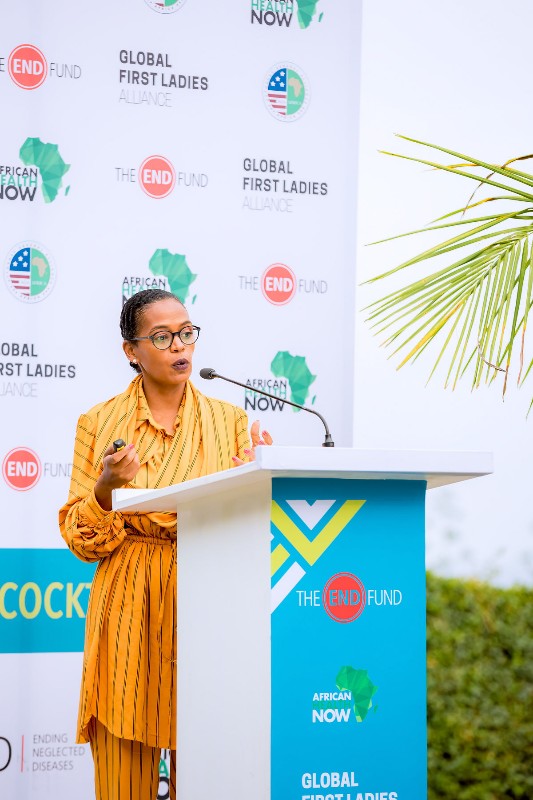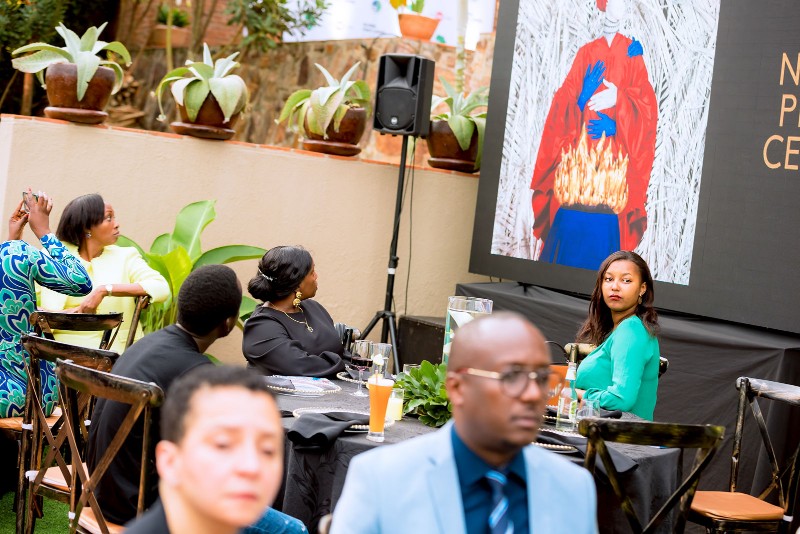Rwanda, African stars commit to fight against NTDs

African stars and influential leaders in sport, business, art and health have convened to joint the fight against neglected Tropical Diseases (NTDs) as has urged by Rwanda Health Minister Dr Ngamije Daniel.
Those diseases are viral, parasitic and bacterial diseases that mainly affect the world’s poorest people, especially Africa continent.
The Minister of Health Dr Daniel Ngamije has highlighted what Rwanda has done to fight against those diseases and has talked about how using shared platforms can amplify awareness.
He was speaking during their reception, in the lead-up to the Kigali Summit on Malaria & Neglected Tropical Diseases and the launch of the Kigali Declaration alongside the Commonwealth Heads of Government Meeting, to be hosted by the Rwanda Government in June 2022. The reception was organised by International Olympic Committee; the END Fund; and the Global First Ladies Alliance (GFLA) at Kigali on 26 May 2022.
For Ngamije, Africa is the continent which is affected by Neglected Tropical Diseases.
“Globally, over 1.2 billion people are affected by Neglected Tropical Diseases. Africa is the most affected part of the globe with almost 40 percent of the global NTDs burden,” he said.
He added what Rwanda has done to fight against this disease.
“Between 2008 and 2020, we have successed in reducing the prevalence of intestinal worms in schools from 66% to 41%. We reach everyone at risk… We can hope to double this decrease and sustain our achievements in the years to come.”
Apart from this success, Rwanda hope to do more as done before as notified by WHO.
“Last month, Rwanda received a notification from the WHO, that Human African Trypanosomiasis has been eliminated as a public health problem in the country.” Ngamije said.
For Dr Ngamije The Kigali declaration on NTDs is a new high-level political declaration which aims to mobilise political will and secure commitments to achieve the Sustainable Development Goal (SDG) 3 that aims at ending NTDs, among other diseases.
That declaration comes in to inspire country ownership of NTDs programs by increasing domestic financing and encouraging sustained and renewed commitment to reach SDGs related to NTDs and the WHO Roadmap 2021-2030.
African stars and influential leaders have convened to joint the fight against this disease.
Benny Bonsu, award-winning broadcaster and Director of Daily Content at the International Olympic Committee looks forward to working alongside the team.
“It is energizing to see these leaders from the sports, business and art communities learning about NTDs and how they can support our work with their platforms. I look forward to working alongside them.”She said.
Oyetola Oduyemi, Senior Director, Public Affairs at the END Fund said, “Eliminating NTDs will require the unflagging support and influence of committed stakeholders across sectors. This evening in Kigali marked an important step in mobilizing resources to end NTDs, a goal we are determined to reach within this decade.”
Nicole Field Brzeski, Co-founder of the Global First Ladies Alliance, said “Rwanda’s leadership in the fight against NTDs is both impressive and inspiring. The First Lady’s role is critical given her platform and how these diseases intersect with so many other challenges we face – water and sanitation, education and gender inequality, to name a few. The brilliant partners who joined us for this reception will be critical to the continued progress in ending NTDs.”
NTDs affect more than 1.2 billion people – often those living in resource-constrained, remote communities and lacking access to basic needs like clean water. While these diseases cost developing economies billions of dollars every year, supporting NTD programs is known as one of the “best buys in public health”: just 50 cents USD funds the delivery of medication to treat several of the most common NTDs, bringing huge social and economic returns through improved school attendance and productivity.
Significant progress has been made since the 2012 London Declaration on NTDs, which brought together partners across sectors, countries and disease communities to press for greater investment and action on NTDs. The Kigali Declaration builds upon the goals established by the London Declaration and emphasizes the importance of leadership from the individuals, communities, and governments that are most affected by NTDs to reach elimination by 2030.
43,000 blindnesses and disability-preventing surgeries; and trained nearly 3.5 million health workers to pre-empt and treat neglected tropical diseases.
















